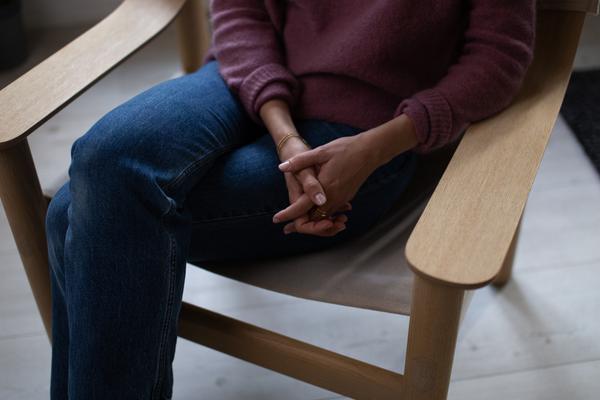Anxiety
Anxiety is about being so afraid or worried that it starts to go beyond how you feel. Talk therapy has a particularly good effect on milder and moderate forms of anxiety, which many of us will experience.
Anxiety is about being so afraid or worried that it starts to go beyond how you feel. Talk therapy has a particularly good effect on milder and moderate forms of anxiety, which many of us will experience.
Anxiety is a feeling of worry, fear or uneasiness that arises in various situations. It is a normal and natural reaction to stressful or threatening situations. However, anxiety can become a disturbing and distressing condition when it is experienced in an excessive or unreasonable manner, or when it occurs for no apparent reason.
Anxiety can manifest itself in different ways, such as physical symptoms, emotional reactions and behavioural changes, and can affect one's ability to function in daily life.
Psychological symptoms of anxiety include worry, stress, and rapid or incomplete thoughts.
Physical symptoms include bodily discomfort, pressure in the chest or abdomen, restlessness, nervousness, nausea, ringing in the ears and blurred vision. Behavioural symptoms of anxiety often include avoiding things that cause anxiety and seeking reassurance from others.
Anyone can experience anxiety at times, and that's completely normal. You do not always need professional treatment for anxiety. We can say that anxiety only begins to require treatment when it prevents you from living the way you want, prevents you from doing things you really think you should be able to do, or if you spend a lot of your time trying to avoid the anxiety or situations that provoke it. In short: if you feel that anxiety has started to take control of your life, it may be a good idea to seek help.
Social anxiety revolves around a pervasive fear of rejection or criticism, leading individuals to avoid social situations as much as possible. When unable to avoid such situations, it is common to experience classic anxiety symptoms alongside thoughts of being judged, feeling less valuable than others, or perceiving a lack of competence in handling the situation.
Read more about social anxietyPanic disorder is a more extreme but also short-lived form of anxiety characterized by intense bodily discomfort and restlessness – often mistaken for symptoms of a heart attack. It is not uncommon for individuals to fear they may go insane or die during their initial experiences with panic attacks. Typically, the avoidance behaviour that follows – doing everything possible to avoid future attacks – becomes a greater problem than the panic attacks themselves.

Fortunately, there are good treatments for anxiety. We usually start with an initial survey of how anxiety affects you and your life so that we can understand you and your anxiety. After the survey, it is usual to start the treatment with some form of exposure - where we expose you to the anxiety under a controlled framework that you help decide.
Treatment for anxiety can sometimes also involve an exploration of underlying feelings or past experiences that may be contributing to the anxiety. In any case, there will always be a collaboration between you and the psychologist which ensures that the treatment is adapted to you and your needs. The most important outcome of treatment will always be that you can live life the way you want it, without being hindered by anxiety.


Meet the psychologist or psychiatrist in the clinic or via video. Our psychologists also offer walking therapy.

There is no answer for how long a course of therapy lasts. Some people need hours over a long period, while others need a few.
